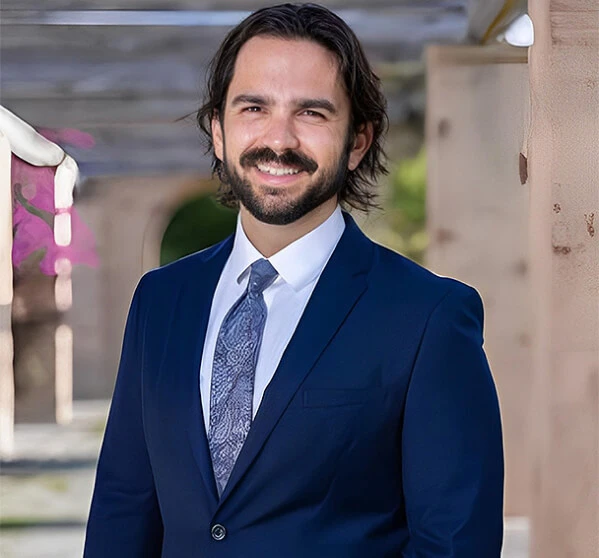Estate Planning Attorneys

Do you need help with Probate in Florida?
Alexander P. Gil, Esq.
Alexander Gil was admitted to the Florida Bar in September of 2014. His focus is primarily in the areas of estate planning, special needs planning, asset protection planning, guardianship administration, and probate administration.
Alexander graduated Magna Cum Laude from the University of Miami School of Law in 2014. In addition to his law degree, Alexander earned a Masters in Taxation from the University of Miami School of Law Joint Degree Program. He was a Staff Editor for the Inter-American Law Review.
What Our
Clients Say

Our Probate Process

Locate and interpret the deceased's will, if one exists
The will speaks your loved one’s final wishes. We carefully study every word, honoring their intentions. If no will exists, we distribute according to state law.

Identify and value the assets
of the estate.
From the family home to cherished heirlooms, we thoroughly account for each asset with professional appraisals to preserve maximum value.

Assist in appointing an executor or administrator.
Selecting the right executor is critical. We guide you through this important decision with care, ensuring trustworthy oversight.

Guide you through the probate court proceedings.
Probate court is where the real work happens, but it’s full of red tape. We simplify each step, shouldering the burdens so you can grieve in peace.

Address any family disputes or potential conflicts.
Dividing an estate sometimes strains relationships. Our probate counsel helps find respectful resolutions that honor your loved one’s wishes.

Ensure compliance with state & federal tax requirements.
Doing right by the tax authorities is non-negotiable. Our probate team ensures full compliance while maximizing what goes to your family.

DISTRIBUTE REMAINING ASSETS TO RIGHTFUL BENEFICIARIES.
When all is settled, you can trust every penny gets distributed exactly per your loved one’s plan or state law, providing closure.
Working With Us
Before
- Overwhelmed & confused about the probate process in Florida.
- Anxious about trying to handle probate alone.
- Unsure how to locate, interpret, or execute your loved one’s will
- Worried about potential disputes with family members or conflicts
- Concerned about not being able to honor your loved one’s wishes
- Frustrated by the time-consuming nature of the probate process
- Stressed at the idea of going to probate court by yourself
After
- Confident on how to navigate the Probate process in Florida
- Relief that someone knowledgeable is handling probate for you
- Peace of mind knowing an experienced probate lawyer has your back
- Comfort knowing your loved one’s wishes will be honored
- Assurance with skilled legal representation in probate court
- Clarity on what to expect throughout the process
- Support from a compassionate team who understands your needs
- Freedom to focus on healing and moving forward
- Confidence that your loved one’s legacy is protected
- Trust in a partner who will guide you every step of the way.
Frequently Asked questions
Locating the deceased’s will, if one exists, is crucial as it provides guidance on how the estate should be distributed and may name an executor responsible for managing the probate process.
If a will exists, identifying the named executor is essential. If there is no will or no named executor, the family may need to decide who will take on this role and seek court appointment.
Understanding the types of assets owned by the deceased, such as real estate, bank accounts, investments, or personal property, is necessary to determine which assets are subject to probate and which may pass directly to beneficiaries.
The deceased’s family may need to address pressing financial issues, such as paying bills, mortgages, or taxes, which can prompt them to seek advice from professionals like attorneys or financial advisors.
The complexity of the probate process can be daunting, so seeking guidance on how to initiate probate proceedings with the appropriate court may be an immediate concern.
If there are disagreements among family members regarding the estate or the deceased’s wishes, seeking legal advice to help resolve these issues may become a priority.
The deceased’s estate may be subject to various state and federal taxes, prompting the family to seek advice from tax professionals to ensure compliance and minimize potential liabilities.